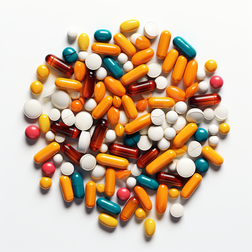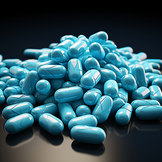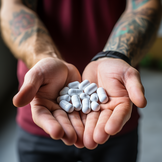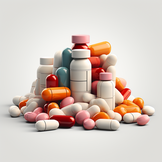Can viagra keep you hard after ejaculation?
- Viagra and Its Primary Use in Treating Erectile Dysfunction
- How Viagra Works: Increasing Blood Flow to the Penis
- Viagra's Effect on Maintaining an Erection After Ejaculation
- Viagra and Its Potential Role in Treating Premature Ejaculation
- Safety Concerns: Prolonged Erections and the Need for Medical Attention
- The Importance of Sexual Arousal in Viagra's Effectiveness
- Proper Use of Viagra: Following Healthcare Provider's Prescription and Recommendations

Viagra and Its Primary Use in Treating Erectile Dysfunction
Viagra, a renowned prescription medication, is widely recognized for its role in treating erectile dysfunction (ED). It was originally developed as a heart medication but was soon found to have a significant effect on penile erections. Since its introduction to the market, it has been instrumental in helping millions of men regain their sexual confidence by improving their ability to maintain an erection.
How Viagra Works: Increasing Blood Flow to the Penis
Viagra works by enhancing the effects of nitric oxide, a natural chemical that the body produces to relax muscles in the penis. This relaxation allows for increased blood flow during sexual stimulation, leading to an erection. Essentially, Viagra aids the natural erectile process, but it doesn't cause an erection without sexual stimulation.
Viagra's Effect on Maintaining an Erection After Ejaculation
One of the common queries about Viagra is whether it can keep you hard after ejaculation.The answer lies in understanding the "refractory period"—a recovery phase after ejaculation when it is physiologically impossible for a man to have additional orgasms.
Viagra can't significantly shorten this refractory period.
However, it can help a man to achieve another erection more quickly than he would without the drug once the period has passed.
Viagra and Its Potential Role in Treating Premature Ejaculation
Another often-asked question is whether Viagra can help with premature ejaculation (PE). Although primarily designed to treat ED, some studies suggest that Viagra might help with PE because it can allow men to maintain their erections longer, indirectly giving them more control over ejaculation. However, these findings are preliminary, and Viagra is not officially approved for treating PE.
Safety Concerns: Prolonged Erections and the Need for Medical Attention
While Viagra has proven effective for many men, there are safety concerns associated with its use. A significant concern is the possibility of a condition known as priapism, where erections last longer than 4 hours. This is a medical emergency that requires immediate attention to prevent long-term damage. Other side effects can include headaches, facial flushing, upset stomach, abnormal vision, and, in rare cases, hearing loss.
The Importance of Sexual Arousal in Viagra's Effectiveness
It's crucial to understand that Viagra doesn't generate sexual arousal. Instead, it aids in the physiological process of achieving an erection once an individual is sexually aroused. Without sexual stimulation, Viagra won't cause an erection. It helps facilitate the natural processes that occur when a man is stimulated.
Proper Use of Viagra: Following Healthcare Provider's Prescription and Recommendations
Proper use of Viagra is essential to ensure its effectiveness and minimize potential side effects. It should always be used following a healthcare provider's prescription and recommendations. Typically, Viagra is taken one hour before sexual activity, and its effects can last for up to four hours. However, it shouldn't be used more than once a day. Remember, if you have any health conditions or are taking other medications, it's important to discuss this with your healthcare provider to prevent any potential adverse interactions or side effects.
Thus, while Viagra is a potent tool in managing erectile dysfunction and potentially aiding premature ejaculation, it must be used responsibly and under the guidance of a healthcare provider.



